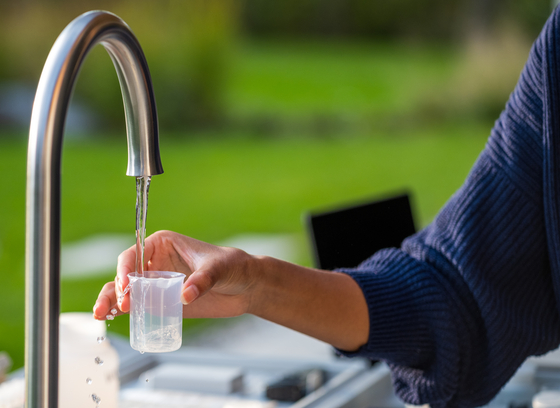About
The Bureau of Environmental Health recommends that anyone who obtains their water supply from a private well have their well water tested regularly. Although private well water can provide excellent quality drinking water, the water can also become tainted with bacteria and chemicals from unseen sources.
You are responsible for maintaining the safety of your drinking water supply.

Title
What should you test for?
Content
Although it is impractical to test for all possible contaminants, two inexpensive tests can serve as indicators of the overall condition of your well:
- Coliform Bacteria: Coliform bacteria do not usually cause illness, but serve as an indicator that disease-causing organisms could get into your well.
- Nitrate: Nitrate passes very easily through groundwater from sources such as fertilizers, septic systems and animal waste.
Title
When should you have your well water tested?
Content
Generally, it is now recommended to have your well water tested every year, or:
- If a family member is experiencing recurrent gastrointestinal problems.
- Whenever you notice a change in taste or color of the water.
- After any type of well repairs or if you notice that the well cap is not secure.
- Prior to the selection and installation of any treatment system.
- For nitrate, if a pregnant woman or newborn baby is drinking the water.
Resources:
Title
To have your water tested
Content
- Typically Howard County Health Department can collect samples from established wells to be tested for bacteria and nitrates by the Maryland Department of Health (MDH) Laboratory. While there is often a fee for the testing by the MDH lab, we do not charge fees for collecting the samples.
- For more complex testing needs you can click here to find certified labs: List of Approved Drinking Water Laboratories Certified in Maryland
- Contact the Howard County Health Department at 410-313-1773 for assistance.
Additional well information can be found at EPA Private Drinking Water Wells